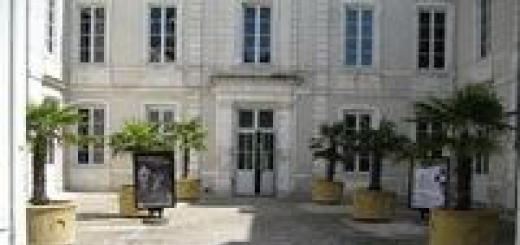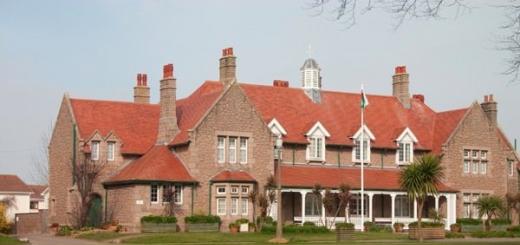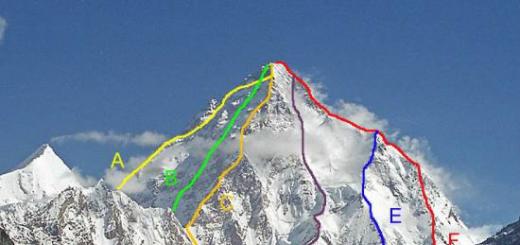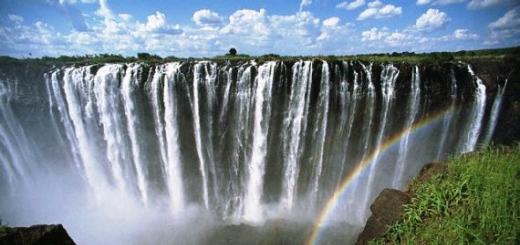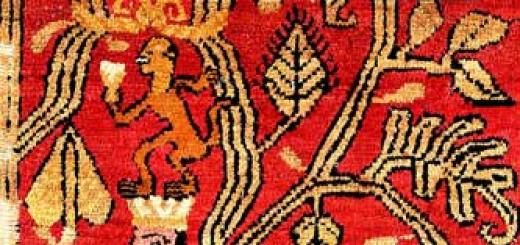Seoul is the capital of South Korea, the city of the future and a place that is good for both locals and tourists. Europeans, including Russians, have a special relationship here. Any Korean will help the lost tourist to the best of his ability, he will be smiling and friendly. The respect and maximum sympathy of the local residents pleasantly surprises the domestic layman who is not used to such a reaction. True, there are difficulties in communications: the majority of the local population should not count on a full knowledge of the English language. Nevertheless, everything here contributes to a wonderful holiday.
Flight
If you decide to visit South Korea, namely, the city of the future - Seoul, then you first need to decide on the date of the trip and the nuances of the flight. Whether to buy a ticket half a year before the expected date of travel or a month before, it does not matter. The low cost of the flight depends on the specific dates of departure and return. The average cost of an economy class ticket per person round trip is 35,000 rubles ($1,100). But if, for example, we extend the duration of the trip to Korea by one day before the originally planned departure and, accordingly, fly out a couple of days later, then the price of the flight will drop to 25,000 rubles ($ 760), thus, you can save up to 300 rubles on the flight. $.
In this case, it will not be possible to save on the total cost of the trip, because you will have to spend money on additional accommodation, meals, and so on. However, it is always better to see and visit more than a shorter trip and spend the same amount.
A convenient search for cheap flights offers the Skyscanner service. And yes, there are apps for iOS, Android or Windows Phone.
In my case, a round trip ticket cost about 26,000 rubles ($800) from Emirates Airlines. Before booking a ticket on the company's website, you can independently choose the landing site, the desired menu from a variety of dishes, etc. The flight took place on an Airbus A380 aircraft with a 3-4-3 seating arrangement. Each passenger had a comfortable reclining seat and their own 9-inch display to watch modern movies in a variety of languages, including Russian. Alternatively, you can simply listen to music or play games. The flight took 17 hours with one transfer in Dubai. You should not be upset about the lost time due to a transfer, because, for example, Dubai has the largest Duty Free in the world, which operates around the clock. So take care of your money.
Moving around the city
Upon arrival in Seoul, you can order a taxi right at the airport. Passenger transportation services are provided by taxi drivers with special certificates and guaranteed knowledge of English. A taxi is relatively cheap: for an hour of driving through the whole city, we had to pay only $ 40.

The Seoul subway is a separate conversation. Understanding the metro map is not easy, so it’s better to plot the route in advance in a quiet and peaceful place, and not on the go. Although the Seoul metro is radically different from the same Moscow for the better: there are no queues, crowds of people and such chaos. Everything is as clear as possible, if, of course, you know the destination in advance. To get from one destination to another, you have to overcome a huge number of stations and repeatedly change from one line to another, so it is often much more convenient and faster to use land transport or even on foot.

To travel by metro, you need a travel card, on which you must have a certain amount of money in advance. The fare is differentiated depending on the distance of the trip. When entering the metro, the minimum cost of the trip is deducted from the card and, if you have to travel quite a bit, money will no longer be debited from the travel card when you exit. If you had to travel a lot, then when you exit the subway, the amount of the actually traveled distance in excess of the minimum fare, which, by the way, is 1,050 won, which is approximately 1 dollar (1,100 won), will be additionally debited from the card.
Accommodation
In any modern capital there is a huge choice of places to stay. Seoul is no exception. In order to focus on the city and travel experience and not spend a lot of money on accommodation, I recommend choosing hostels, which are available in sufficient numbers in Seoul. On average, a night in a hostel for one person will cost about $20. During our trip to Seoul, we stayed in two hostels. And each of them has a lot of free places, so if for some reason you don’t like the room, you can move to a completely empty 4-bed room next door right on the spot. The atmosphere in hostels is always more than comfortable: everything is clean and tidy, there is free Wi-Fi or even desktop computers for guests. There are no surprises in this regard.
In the next part, I will talk about interesting places in Seoul.
Are you planning trip to Korea? Getting ready for a long vacation? There are many things to take care of before making travel plans and starting to pack your bags. Introducing to your attention some of them.
First of all
For Togo To fully enjoy your time in Korea, you should go on a trip with a good mood. After all, Korea is far from a heavenly and peaceful place where your Problems they just disappear like magic. There is a high probability that you will repeat the mistakes made at home in Korea. So stop dreaming and start living.
pass whether your holiday is wonderful or not is entirely up to you. Try to think clearly, understand and embrace Korean culture.
The Republic of Korea (South Korea) is a state in East Asia located on the Korean Peninsula. The Republic of Korea occupies the southern part of the Korean Peninsula, which protrudes 1100 kilometers from the main part of Asia. From the west, the peninsula is washed by the Yellow Sea, from the east by the Sea of Japan, and from the south by the Korea Strait and the East China Sea.
Applying for a visa to Korea
For arrival V South Korea foreign guests must have a valid passport and obtain a Korean visa before entering the country. However, people from some countries can visit Korea temporarily without a visa. Additional information about tourist, student and work visas, please visit the section Visas.
flights
Many airlines with international routes regularly fly to Korea. Airlines Korean Air And Asiana Airlines also operate flights from various points around the world. Except In addition, low-cost airlines fly here, with the help of which you can save a lot.
Money
Korean the currency is won (₩). Banknote denominations: 1000 ₩, 5000 ₩, 10000 ₩ and 50000 ₩, as well as coins 10 ₩, 50 ₩, 100 ₩ and 500 ₩.
Money can be exchanged at banks, exchange service centers, or official currency exchange offices. Prices in banks vary, so it is better to stop your choice at other currency exchange institutions.
Important Please note that with the exception of Citibank bank accounts, only Korean bank accounts are shown when accepting cash from ATMs in Korea.
ATMs(CD) are commonly found in shops, subways, railway stations, bus stations and shopping malls. When using international debit cards bearing the Plus and Cirrus logos, it is possible to access funds from international bank accounts through ATMs bearing the same logos.
Transfer from the airport and back
Exist various travel options between airports and cities in Korea.
Taxi: despite the comfort, taxis are one of the most expensive modes of transport. By information from the website of Incheon International Airport (http://www.airport.kr) a trip from Seoul to airport, lasting about an hour, a standard taxi will cost approximately 44,000 won, and a luxury taxi will cost 80,000 won.
Buses: various types of buses leave from airports in Korea, including special buses. airport transport, local buses, etc.
Car rent: Car rental is available in Korea for people with international driving certificate. You can rent a car at the airport, major railway stations, and express bus stations.
Voltage and frequency
Voltage The power grid in Korea is 220 volts, 60 Hz. Plugs with two round pins are used. Depending on the voltage of your device and the shape of the plug, you may need to converter voltage or adapter. Both can be purchased at discounted rates at malls such as E-Mart and Home plus or electronics stores.
When crossing the border, you must present the following documents:
a passport valid at the time of entry;
return tickets or tickets to a third country;
confirmation of the availability of sufficient funds for the entire period
stay in the country. If you have a hotel reservation (printouts from the Internet
enough) or a voucher from a travel agency, border guards are rarely interested
availability of financial resources from the tourist;
completed migration card and customs declaration
(issued on the plane, on the ferry or in the arrivals hall in front of the booths
passport control).
Culture and etiquette
your Here is a brief introduction to etiquette and Korean culture that will help you better understand life in Korea.
Bow: bow is the most common form of greeting in Korea. Informal form of bow recalls a nod, and a deep bow is considered the most polite greeting. Koreans sit cross-legged on the floor and bow deeply in front of the elderly.
The usual form of a bow consists of several stages:
stand up right at a distance of 1-2 meters from the person before whom you intend to bow.
take a bow from the waist while keeping the neck straight.
Straighten up.
Say hello: "안녕하십니까" ?
In order to feel natural, you first need to practice this procedure. Bow And words: "안녕하십니까" ? - like most Koreans, as it expresses respect and modesty. It is also important to note that it is considered disrespectful to make eye contact when talking to elders.
Handshake: Despite the increased number of handshakes in recent years, this is not a traditional part of Korean culture. Shaking hands with a person of a higher position or older yourself, when performing a slight bow, place your left hand on your right forearm. In the West, a very firm handshake is a sign of trust and respect, but if you do this in Korea, your new acquaintance may feel uncomfortable.
Respect for elders: Koreans have a reverent attitude towards age. Seniors are treated with great respect. Young people always greet older people first. Guys call sisters or girls older girls - "Nuna", and younger girls - "Unni". "Hyung" is an older brother or adult male for boys, and "Oppa" is for girls. If a person is over forty or if there are 10- summer age difference, then such men are called "Ajussi", and women - "Ajuma".
Language of the body: touching someone who is not a relative or close friend is considered by Koreans as a violation of his personal space. When communicating, try to avoid touching and patting. Always pass and receive objects with your right hand (with your wrist or forearm should be supported with the left) or with both hands. To call someone, you need to stretch your hand with your palm down, and make “scratching movements” with your fingers. And never guide your index finger. When sitting, do not cross your legs. Keep your feet on the floor, not on your desk or chair.
Attachment: girlfriends and women who are relatives of each other can be recognized by the way they walk holding hands, which is a symbol of close relationships. close friends relationship among men, are also expressed in a tendency to show less personal space in relation to each other, in comparison with the way it is customary in the West. The close relationship is shown through friendly gestures. However, Koreans use hugs as a greeting less often than in Europe. Kissing and other intimate displays of affection in public places are unacceptable.
Public transport: At the end of subway cars and in front of buses, there are special places designed for the elderly, the disabled and pregnant women. If everything busy, then it is customary for these persons to give way to seats in another part of the transport. Older people often categorically refuse such an offer, but the person who conceded, as a rule, insists on his own. With one free seat, Korean women are more likely to let their companions - men sit, while they themselves prefer to ride standing up. Those who are seated are expected to hold their comrades' bags.
Washroom/toilet: not all public places (bars, restaurants, etc.) have latrines, but some use a shared toilet inside the building. It is advisable to carry tissues with you at all times, as All restrooms can provide them. At some stations and other public places, you may find Asian-style toilets where the user must "squat" and throwing away used wipes in specially designed containers. Most restaurants and cafes such as Outback Steakhouse, McDonald's, Coffee Bean, Tea Leaf, Starbucks have western style restrooms.
Street: Usually Koreans walk on the left side of the sidewalk, opposite to the flow of traffic. It's not often you see walkers walking and eating at the same time. In many areas Can meet places where they sell various snacks and light meals. However, it is customary to eat at the same time on the spot, standing in front of the counter. Keep in mind that cars drive on the right in Korea. And on the sidewalks, deliveries on scooters appear from time to time, so be vigilant!
Safety and security
South Korea is a relatively safe country. Until late at night, both in big cities and in rural areas, you can meet people on the street.
You can bring your pets
For that, to bring your pets, you need a certificate of quarantine or vaccination against rabies issued by veterinary clinic or your government. In addition, with a certificate of quarantine contact the National Veterinary Research and Quarantine Service.
09.08.18 144 728 139
How to make money in South Korea
Hourly pay, free lunches and job market scams
In October 2016, I quit my job and decided to fulfill my childhood dream - to visit South Korea, and at the same time earn money.
Alexandra Chagai
went to live and work in South Korea
Now I work at one of the car factories and help Russians with employment. I will tell you how to find a job in South Korea and not become a victim of scammers.
Relocation and visa
Since 2014, the visa regime has been abolished between Russia and South Korea. Citizens of both states have the right to stay in the territory of the countries for no more than two months.
Often Russians come to South Korea as tourists, and then get a job. This is illegal: a visa is required for legal employment. There are several types of such visas.
110 950 R
average salary in South Korea. In Russia, the average salary is almost three times lower
C-4- a short-term visa, issued for long-term business trips from three to six months.
D, E, H- such visas are issued to foreigners who plan to work in the country or come for business purposes for more than two months. The same visas are issued by students and graduate students entering local universities.
F-1- family visa, it is issued to foreigners who have married citizens of Korea.
F-2- for long stays.
F-3- Accompanying a relative
F-4- issued to ethnic Koreans.
E-1, E-3, E-5- issued for scientific research.
Illegals are often cunning. For example, they get a study visa, pay for the first months of study, and get a job themselves. Recently, this loophole was closed by abolishing the monthly tuition fee at the university - now you have to deposit money for the entire semester at once.

Some immigrants enter into fictitious marriages with ethnic Koreans, receive a family visa F-1 and get employed. By law, with such a visa, you can not work everywhere, but employers often turn a blind eye to such things.
Recently, another method of legalization in the country is gaining popularity among Russians: immigrants apply for political asylum and receive a visa G-1. While the application is being considered, you can legally stay in Korea. Even if it is rejected, nothing prevents you from filing an appeal and again waiting for a decision for several months, continuing to work.
I am an ethnic Korean, so it was easy to get a visa F-4, with which you can live indefinitely in the country and get a job without any problems.
Whom to work
It is easiest for a foreigner to get a job where no qualifications are required. At the same time, the salary will still be two to three times higher than in Russia.
They just pay more
Our compatriots go to the country for high salaries: the average salary in Russia (according to Rosstat for January 2018) is 38,400 R, in South Korea - 2,000,000 won (110,950 R).
For example, a motel maid earns 1.5-1.8 million won (83,210-99,850 R) per month, while still providing a free room for accommodation and meals.
The salary of a waiter is 1.3-1.7 million won (72 115-94 305 R) per month, an agricultural worker - from 60,000 won (3330 R) per day, a worker in a factory - 1.3-3.5 million won ( 72 115-194 160 R) per month, fisherman - from 80,000 won (4440 R) per day.
4440 R
earns a fisherman in South Korea per day
I work at one of the Hyundai car factories in Ulsan, which is about a three and a half hour drive from Seoul.
 The city of Ulsan in South Korea looks like this. Photo: v15ben, Flickr
The city of Ulsan in South Korea looks like this. Photo: v15ben, Flickr In total, the company has about 50 Russian-speaking employees - all visitors from Russia and the CIS countries. Hyundai factories are scattered throughout the country. Each company produces some kind of separate part: one makes rubber door seals, another makes plastic pistons, and the third makes chair covers. Then, in a separate production, all this is assembled together.
In large enterprises, male and female labor is clearly separated. For example, women check parts for defects and correct defects, while men work on machines: press parts, control robot welding.


How to find a job in South Korea
There are many ways, I will tell you about the most popular.
There are sites on the Internet where you can ask questions to people who are already working in Korea and ask them to help with employment. Russians actively help each other, often for free. This enthusiasm must be exploited. For example, even if you have found a suitable vacancy, it is problematic to get a job without knowing the language. We'll have to look for a translator. It is better if you already have acquaintances in South Korea.
Through an intermediary it is worth looking for a job if you have neither knowledge of the language nor acquaintances. Services cost $150. Such people often have their own database of vacancies.
150 $
the services of an intermediary in finding a job
For an additional fee, they will meet you at the airport, help with paperwork and opening a bank account, rent an apartment, and so on. Throughout the entire period of work, you will have a personal life consultant in South Korea who will solve the problem with insurance, pension contributions, salary delays and more. If the job you are applying for is difficult, the intermediary will find another job.
That's how I got my first job, no problems. The only thing I would advise is not to give money in advance, but to pay for services after getting a job.
scammers
Among the intermediaries there are also scammers who negotiate in advance with dishonest business owners. The intermediary publishes advertisements, offering jobs even to those who do not have a visa.
When a whole group of foreigners is recruited, they are arranged for "their" enterprise. Then salary delays begin, but the intermediary reassures that this happens and we still have to wait.
Recently, there have been more and more such cases. In social networks, victims of scammers post detailed information about such intermediaries, photos, videos, links to vacancies, and phone numbers. Therefore, if you decide to use someone else's services, you should read communities in social networks so as not to run into a swindler.
job centers suitable for foreigners who know the language at least at a basic level. Some of these centers (in Korean - "samushil") help with work even visitors who do not have a visa and a registration card.
They do not offer permanent work, every day you have to work in a new place. The earlier in the morning you get in line at the Samushil, the higher the probability of getting a job. Given that the centers open at 6 am, you will have to get up early. There can be several job centers in one city.
You can find the nearest one through the special mobile application "Cocoa Map".
|
|
|
Work can be very different - from packing fruits and cleaning apartments to construction. Salaries are issued daily: men receive from 80,000 won (4440 R), women - from 55,000 won (3050 R). A 10% commission is taken by the "self-made".
If you like some employer, you may be offered a permanent job.
from 3050 R
you can earn in a day through the job center
I used the services of the centers twice, and the impressions are mixed. On the one hand, the work was easy. For example, I packed medical face masks: masks arrive on the conveyor, you need to count 10 pieces, then assemble the box and put the masks into it. On the other hand, there is no stability when arranging through “self-help”: today you were not hired and you were left without money.
Arriving at a new place of work, pay attention to the people of what nationalities work there. It says a lot about the employer. According to my observations, the Chinese choose easy work, regardless of the level of wages. If only Filipinos work, I decided for myself that the work is harmful or dirty. If there is not a single Russian, I always double-checked the employer - most likely, the work will be difficult or low-paid.
Even in South Korea there is a rule: do not stand still. Having finished work earlier, you cannot rest unless a break is announced. It is necessary to occupy yourself with something, for example, to clean the workplace. The main thing is not to stand, but to create the appearance of violent activity.
Interview
Before applying for a permanent position, you will have to pass an interview. The main attention will be paid to your external data, and education, for example, does not play any role. Knowledge of the language would be an advantage, but not required.
They can refuse even because of excess weight. If the choice is between a candidate of sciences and a handsome man without education, they will choose the second one. That is why plastic surgery is so popular in South Korea. And in the standard questionnaire when applying for a job, there is even a column where you need to indicate your weight. There are also age restrictions - it will not be easy for people over 45 to find a job.
At the same time, you don’t have to come to the interview too presentable: a woman is better off with a minimum of makeup and not wearing high-heeled shoes. Koreans believe that a person who is too well-groomed is not suitable for physical work. Once I witnessed how two girls from Russia came to an interview - both in denim shorts, shirts with bare shoulders and slates. They were not hired and told not to come back.
Knowing the language is good, but it is much more important to learn the local etiquette and traditions. One of my acquaintances was fired for calling his boss with his palm turned up. This is how dogs are called in Korea. People wave only with the palm down.

Serious attention in South Korea is paid to joint meals - "hveshchik". Colleagues gather after work to eat and drink something strong. If a person older than you invites, and even more so if this is the boss, then you cannot refuse.
You need to remember about a variety of little things. For example, if a glass of alcohol is served, it must be taken with both hands. You also need to clink glasses while holding a drink in both hands. This is how you show your respect for the person. If you clink glasses with someone who is older in position, then your glass should be kept a little lower. Drinking alcohol should be turned away, and the more you drink, the more you will delight the Korean.
If you do not follow all these numerous rules, then relations with colleagues and superiors will quickly deteriorate.
"Nunchi"
In South Korea, there is such a thing as "nunchi". This word cannot be translated into Russian. In general terms, "nunchi" is the ability to perceive non-verbal signals when communicating with other people, understand the situation and respond to it. "Nunchi" is very important in Korea.
For example, if your boss calls you, you need to speed up your step. By this you show his authority and your respect. You can not argue with the authorities, even if you are one hundred percent right. If you are being scolded, you cannot look into your eyes, you must lower your head and listen in silence or agree with the words: “Yes. I got it".
Salary and schedule
Salary is directly related to the number of hours worked. It also affects the shift in which you worked: day or night.
The minimum hourly wage is set by law and is 7530 won (414 R). The working day starts at 8-9 am. After 17:30, "overtime" begins - each next hour of work is paid at one and a half times the minimum rate - that is, a minimum of 11,295 won (622 R) per hour. Night shifts are also paid at one and a half rates.
414 R
The employer is required to pay the minimum wage for an employee's hour of work.
If you work weekends or holidays, the hourly rate will be double the minimum rate of 15,060 won (829 R).
Most often, night and day shifts alternate: you work in day shifts for a week, and night shifts for a week. If you agree with the authorities, you can work only in the daytime or only in the night shift. In the second case, you will be able to earn much more. There are businesses that do not work at night.
Wage increase
Since January 1, 2018, the cost of an hour of work in South Korea has increased by 16.4%. This is the highest rate increase in the country's history.
In 2017, the minimum rate was 6470 won (356 R) per hour, now 7530 won (414 R).
In January 2018, after switching to the new tariffs, I earned almost 3 million won (R165,000). After deducting income tax and residence (87,208 won - 4,799 R), housing and utilities (153,400 won - 8,440 R), I had 2,759,392 won (151,842 R ) left.
How much did I earn in January 2018
Day
Overtime
Night
Holidays and weekends
161 994 R
i got it in january 2018
Different companies have different bonus systems. It all depends on the employer: somewhere there are all types of bonuses, and somewhere only a weekly, or monthly, or only the thirteenth salary.
In South Korea, the “out” system operates: if you get a job in the first half of the month, you will receive your salary for the first 15 days only on the next day, on the 15th-17th. Then they will start paying as expected, every month.
The salary is transferred to a bank account. Anyone can open an account in South Korea. There are banks that do not pay attention to the client's documents at all.
Food and insurance
The lunch break at large enterprises usually starts at 12:00 and lasts from 30 minutes to an hour. They feed at the enterprise in the local canteen. The menu is always the same: boiled rice, soup, three or four types of salads, hot dishes.

If the duration of the working day exceeds 8 hours, the employer can also feed employees with dinner. I know that some enterprises even have an afternoon snack - they give milk with a bun.
Medicine is very expensive in South Korea, so I advise you to have insurance, despite the fact that not all employers require it. When you get a job officially, the insurance opens automatically. If you came to Korea with your family, you have the right to include all close relatives in your insurance. The amount of insurance premiums depends on how much you receive and how much you pay for housing. If there is no official work, then insurance will cost 90,000 won (4952 R).

What is it like to live here
In Korea, you can earn faster than in Russia. Work is physically harder: in most cases, the entire working day is spent on your feet. But I never regretted my decision to move.
There is always something to do in your free time. I used to often go to Seoul on weekends for shopping and walking. Two days in the capital cost 320-530 thousand won (17,610-29,165 R). This amount includes accommodation, meals in restaurants, shopping, visiting a nightclub, slot machines.
from 17 610 R
I spend two days shopping in Seoul
Korea has a pleasant climate, although the humidity is high. Autumn and winter are not as severe as in Russia. There is a sea and many beaches, a lot of attractions. In cities, ancient palaces coexist with mirrored skyscrapers. Everything is very bright - signs, colorful buses, taxis. In addition, the country is very safe - you can safely walk around the city at two in the morning.
 In Seoul, you can just go for a walk. Photo: Dickson Phua, Flickr
In Seoul, you can just go for a walk. Photo: Dickson Phua, Flickr In Korea, everything is done for the comfort of people. For example, at the entrance to the shopping center there will definitely be a device for wrapping a wet umbrella in cellophane so that it does not drip. In a restaurant, you can make an order and pay for it at the terminal at the entrance, and then just sit at the table and wait for everything to be brought. Moreover, they will bring more than they asked for: they paid for one soup, and on top they will give ten snacks for free: kimchi, radish kimchi, onions, bean paste, seaweed, peppers, lotus roots, pickled quail eggs and much more.
Koreans themselves are smiling and friendly people, they are friendly towards foreigners. Although in general, the locals take a long time to get used to new people in their environment. For example, in a team, at first, a newcomer will be treated coldly, but then the ice will melt and you will become part of a large family.
There are many more reasons to visit South Korea than just the abolition of visas.
- Firstly, it is a very original country with a rich history and unique cultural monuments.
- Secondly, stunning nature and many options for recreation - hot springs, beaches, ski resorts.
- Thirdly, South Korea keeps up with the times, and sometimes ahead of it. A rare fusion of tradition and innovation awaits you, so there are activities and entertainment for every taste.
In addition, South Korea is still not the most popular and even exotic destination, so if you are looking for unbeaten routes, urgently book a ticket for a Moscow-Seoul flight.
When to go:

You can travel to South Korea all year round, but remember that the country is located in a temperate climate zone, so the seasons are very clearly expressed there. Winter is a time for skiers, but not only. Koreans brighten up the cold with a variety of winter-themed festivals. For example, the Tebaxan Nature Park hosts the Snow and Ice Sculpture Festival. Want to bask in the sun? Then you need to plan a trip for the summer and choose seaside resorts. At this time, the temperature rises to + 35C.

Sightseeing lovers should go to South Korea in the spring, from mid-March to June. At this time, it is already warm, there are many sunny days, and the monsoon rainy season has not yet arrived. Spring is the season for cherry blossoms. But autumn is also good in South Korea - bright, colorful, without precipitation until the end of September.
How to get there:
Aeroflot and Korean Air fly direct flights from Moscow to Seoul. The flight will take about 10 hours. The cost of a round-trip ticket is from 30,700 rubles. Cheaper (from 26,242 rubles) will fly with a transfer in Dubai by Emirates or to Helsinki by Finnair. From Incheon International Airport, located 52 km from Seoul, the city can be reached by express bus or taxi.
How to get around:
South Korea is a small country, so you should take advantage of this and travel outside the capital. Getting around is very convenient: the main cities are connected by rail, and traveling under the sound of wheels in South Korea, which appreciates advanced technologies, is very pleasant. Trains are divided into 4 types according to speed and level of comfort. The most-most are ultra-fast KTX. Then there are express trains “Saemaeul”, high-speed “Mugunghwa” and passenger “Tong-il”.

For foreigners, there are special general KR Pass tickets that you can buy online. This is a kind of travel card for all types of trains, except for the metro, without restrictions on the number of trips. In addition, the Haeran train runs for tourists with compartments that look like hotel rooms, a restaurant and an observation deck.
The local buses are also very comfortable. They go frequently, are equipped with air conditioning, and sometimes even free wireless Internet. Do you want complete freedom? Rent a car. There are well-known rental agencies in South Korea, for example, AVIS. However, keep in mind that traffic in the country is right-handed and in large cities it is very intense. Road signs are written in Korean and are duplicated in English in small print.
Where to go and what to see:

The first thing that comes to mind is, of course, Seoul. The capital and largest city of South Korea. It usually begins acquaintance with the country. Are you planning a cultural program? Seoul is perfect for you. There are four royal palaces of the Joseon Dynasty and the oldest royal palace of the Gyeongbokgung era. The spirit of the past is still felt in the palaces, and magnificent ceremonies are still held today.

You can travel back in time by walking along Insadong Street, a piece of old Seoul. There you will find many cozy cafes and tea houses, restaurants with local cuisine and traditional souvenirs.

In addition to antiquities, one of the most popular attractions among tourists is a trip to the Demilitarized Zone on the border of South and North Korea. Foreigners are allowed to climb through a secret tunnel dug at a depth of 70 meters under the border. You can get into the Demilitarized Zone only with an organized tour.

But you can safely go to 4DX, 4D cinema. It was in South Korea that the first such cinemas appeared. From 3D, to which we are already accustomed, they differ strikingly: in addition to visual effects, in 4DX you can feel movement and smells, feel the wind and water splashes.
You can easily spend a week or more in Seoul, but the impression of South Korea will be incomplete, so go to other cities, and on the way, indulge in the pleasure of visiting small villages.

By the way, two historical Korean villages, founded in the 13th-14th centuries, are even included in the UNESCO World Heritage List as important monuments of Confucian culture. These are Hahoe Village in Andong City (Gyeongsangnam-do Province) and Yangdong in Gyeongju City (Gyeongsangbuk-do Province). Andong is known not only as the cradle of Confucianism, but also as the residence of the yangban, Korean nobles. Some of their traditional dwellings have survived to this day and operate as hotels.

The UNESCO site is the entire historical center of Gyeongju, the capital of the ancient kingdom of Silla. The ancient Buddhist temple of Bulguksa and Cheomseongdae, the oldest of the observatories that have survived to this day, have survived.

Busan, the second largest city in the country and part-time the sea capital of South Korea, is famous for its skyscrapers, and the world's largest department store located there Shinsegae Centum City will delight shopaholics.

Tired of big cities? There are many beautiful parks in Busan: Taejeongdae, Hale National Marine Park, Haeundae and Gwanalli Beaches, Geumgang Park and Monnae Hot Springs. In search of peace, tranquility, and perhaps the meaning of life, head to Thondosa Monastery, where Buddhist relics are kept.

Daegu is beautifully located in a valley surrounded by low mountains, and is a major Buddhist center with numerous temples. The main attraction and pride of Daegu is the highly revered Haeinsa Temple, which houses the Tripitaka Koreana, the most complete collection of Buddhist canons in East Asia. Don't miss the Chikchisa Monastery with ancient columns and thousands of small Buddha statues.

The city of Suwon is also interesting. Hwaseong Fortress, although not very ancient (only the end of the 18th century), is very beautiful, and there is a Korean Folk Village nearby. Suwon itself captivates with a harmonious combination of new and old, this is especially noticeable on the street of restaurants, where the aroma of kalbi, grilled ribs, simply drives you crazy.

Islands deserve special attention. In the Yellow Sea lies the island of Ganghwado, and on it there are as many as 120 dolmens, ancient burial structures. Here is the altar of Tangun, the legendary founder of the nation, and other younger attractions.

Jeju Island is a popular seaside resort with a mild tropical climate. If you are into golf, then Jeju is a must go. It has 16 golf clubs and is known as the Island of Golf, one of South Korea's most popular sports.

Dreaming of a winter fairy tale? For snow, skiers need to go to Yongpyeong, Phoenix Park and Hyundai Song.

But the most important thing, without which you cannot leave South Korea, are natural hot springs. An hour and a half drive from Seoul are Asan Spavis, thermal springs in the open air - you can swim in them even in cold weather. Indulge in extraordinary treatments such as the jasmine pool or the yellow clay sauna.
The Koreans themselves are very fond of soaking up in hot water, but they will not refuse to go down with the breeze from the water slide. One of the most popular water parks, Seorak Votopia, is located next to the Seoraksan Mountains on the coast of the East Sea. Even if you don’t really like water activities, it’s worth visiting: Seoraksan is part of the Geumgangsan mountain range, which means “Diamond Mountains” in translation, and is considered one of the most picturesque places in the world.
What to do:
In addition to hot springs and golf, there are other entertainments in Korea, at the mention of which the heart of every Korean starts to beat faster. Oddly enough, this is baseball. The beloved American pastime has become so beloved in the East that it has become almost a national sport. If you have never been to the USA and have not seen this game, be sure to go, just study the rules in advance, otherwise it can be boring.

The second is hiking in the mountains. Perhaps this is one of the secrets of Korean longevity: fresh air, physical activity and contemplation of scenic views are very conducive to increasing life expectancy.
What to try:
Koreans eat a lot of rice, but they also like soups and seafood dishes. An obligatory component of the meal is kimchi, that is, fermented pickled vegetables. Fruit is usually served for dessert, while liqueurs and makkory rice wine are popular drinks.

Koreans love to eat and take food very seriously, but fat people are rare. Probably, the thing is that all dishes, according to the Koreans themselves, are exceptionally healthy.
What to buy:
South Korea has a lot of everything that is an everyday item for locals, and exotic and a good gift for foreigners. Here you can find very beautiful products made of pearls, caskets inlaid with mother-of-pearl, fans, embroidery, masks, wooden and ceramic products.

A special pride of South Korea is ginseng. It is sold in different forms - tea, tinctures, extracts, dried and dried ginseng, in honey, in alcohol, in syrup. There are even chocolates and candies with ginseng. Original and, as they say, useful.
Thanks to a series of new agreements recently concluded between South Korea and the Russian Federation, a visa to Korea for Russians in 2020 will not be required if the period of stay does not exceed sixty days, the purpose of the visit can be any.
For a longer visit, an entry visa is made in advance at the Embassy of South Korea or at the Consulates located in the cities of St. Petersburg, Vladivostok, Irkutsk. Also, travel agencies accredited at the Embassy have the right to issue a Korean visa.
The Republic of Korea is one of the four "Asian Tigers" - the most economically developed countries in the region.
The need for a Korean visa
For Russians who plan to visit the state for the purpose of tourism, a private visit (to friends or relatives, for other personal purposes), a business trip, transit, a visa to South Korea will not be required if their stay is short. That is, the rules of a visa-free regime apply, when, when crossing the border, an appropriate entry stamp is simply put in a foreign passport. If a long visit, study, work or long-term treatment is planned, then an application for a visa to South Korea must be submitted in advance in Russia.
It should be remembered that South Korea and North Korea are two different states that are still in a state of military conflict (no peace treaty has been signed between them). North Korea's visa laws differ significantly from those of its southern neighbor. It is not easy to get into North Korea, and if it is possible, then severe restrictions are imposed on the movement of a foreigner. Whether you need a visa to North Korea or not - there is an unequivocal answer to this question: yes, you need it. This issue will be discussed further.
Visa-free entry
 South Korea is becoming an increasingly attractive tourist destination for Russians, especially those who live in southern Siberia or the Far East. For example, residents of Vladivostok, Khabarovsk and Petropavlovsk-Kamchatsky fly to Seoul in much less time than to Moscow. Moreover, many Russian companies have business ties with South Korean partners, who, in turn, have economic interests in the Russian Federation.
South Korea is becoming an increasingly attractive tourist destination for Russians, especially those who live in southern Siberia or the Far East. For example, residents of Vladivostok, Khabarovsk and Petropavlovsk-Kamchatsky fly to Seoul in much less time than to Moscow. Moreover, many Russian companies have business ties with South Korean partners, who, in turn, have economic interests in the Russian Federation.
In order to simplify bureaucratic procedures, mutual visa-free regime crossing the border. Now you do not need to worry about whether you need a visa to South Korea for short-term visits and calmly pack for a trip - the borders are open.
Documents for visa-free entry
To freely cross the border, a citizen of the Russian Federation will need to present only a few documents:
- A current passport that is valid for another six months ( the report comes from the moment of entry into the state, and not from the moment of departure, as in many other states);
- A pre-filled migration card, which is issued on board the aircraft (or other transport by which the passenger arrives in the state);
- Customs declaration (even if there is nothing to declare, this document still needs to be filled out);
- Return tickets from South Korea for any transport (this can be both air tickets and ship tickets), or travel documents to a third country if a foreigner is in transit;
- Confirmation of the availability of money to stay in South Korea, or proof of solvency (a paid reservation from a hotel, a printout from a bank account, from a credit card valid in the state, cash, and so on).
Korean border guards are not very picky about the citizens of the Russian Federation, they are not satisfied with a thorough inspection and study of documents. Often the procedure is quick and formal, the process takes a few minutes.
Migration card
This is a small form in which personal information about the arrival is entered, his address during his stay in South Korea, passport data. It is easy to fill it out, if you have any questions or difficulties, you can contact the flight attendant (on the plane), or the border guards at the airport.
Customs declaration
Completing this form will require some knowledge of the English language. In all columns it is necessary to put down the sign "X" if the traveler is not lucky with him:
- Animals;
- Plants;
- Any goods for sale;
- Weapon;
- Money in the amount of more than 10,000 US dollars (or 10,000 Korean won);
- Other items prohibited for import.
If there are difficulties with filling out the declaration, then it is worth asking the personnel of the aircraft or sea vessel for help. If such an opportunity is not given, then you can turn to a compatriot or a foreigner who speaks English.
Traveling with children
Children are also eligible for visa-free entry. In order for a minor child to safely enter the country, his parents only need a birth certificate (the requirement is not mandatory, but it is better to take it with you)
For a child who travels accompanied by one parent, a power of attorney is required to allow him to be taken out of the country from the other parent. The same noma applies to legal guardians.
If a long-term visa to Korea for a child is required, then it is obtained according to the same rules as for adults.
Types of entry visas to Korea
If the purpose of a trip to South Korea requires a long stay (for example, contract work or study), then the question of whether a visa to Korea is needed is not worth it - it must be obtained in advance at the Embassy of South Korea or at the Consulates of the country. Visas are assigned different categories depending on the purpose and duration of stay: D, E, H, F-4.

Working visa (D, E, H)
South Korea is a developed state with a fairly strong economy, progressive innovations and many practical areas that advance science. That is why a work visa to Korea for Russians in 2020 may be available only to those professional specialists who are highly qualified, in-demand knowledge and relevant experience. Competent managers and narrow specialists can also apply for employment in South Korea (and therefore for the appropriate level of payment).
It should be remembered that there are candidates for vacant positions in the country, but if a Korean employer still wants to hire a foreigner, then he has the right to do so.
A work visa to Korea is made not only on the basis of an official invitation from the employer, it can also be obtained if you submit an application to the Embassy, (at the same time without an employment contract). This option is more complicated, but it can also be implemented.
Student visa (D, E, H)
Such a document will be required for students who want to study in South Korea. There is a list of Universities that have the right to accept foreign students for study. It can be viewed on the website of the Korean Embassy (it is updated periodically).
Visa for Foreign Compatriots (F-4)
Such a visa is intended for Koreans who permanently live in other countries, but not everyone is eligible for such a document. Only highly qualified workers, masters and graduate students with a scientific degree, or employees of South Korean companies who have previously worked in the country and have shown themselves well can receive this type of visa.
Visa for researchers (E-1, E-3, E-5)
Such a visa will be required for a narrow circle of persons who conduct scientific research, conduct any kind of research activity. This type of visa is easiest to obtain if you justify the purpose of your visit to the Embassy. You can check the possibility of issuing a document on the website of the representative office of Korea.
A visa to Korea for researchers can be issued online, in this case, in response to a request, an electronic document is sent (if the visa is approved), which must be shown at passport control.
Features of long-term visas
To be able to apply for a long-term visa to South Korea, you need to provide confirmation that a citizen of the Russian Federation has a guarantor on the territory of this state. They can be either an employing company (in the case of a work visa) or an individual (friend, relative) who is a citizen or resident of South Korea.
The guarantor submits an application to the Immigration Service, after which the visa applicant is allowed to submit papers to the Consular Section of the Embassy (Consulate) in Moscow or other cities.
Documents for a long-term visa
The list of required documents for a long-term visa to South Korea is not very large. You will need to provide:
- Questionnaire filled out in English and Korean(two copies of the form - one in English, the other in Korean);
- Passport, which must be valid for another six months (these 6 months are counted from the moment you leave the country), with a free space for gluing a visa;
- A copy of the passport spread with personal data and a photo;
- If you have an old international passport with Schengen visas, as well as visas from Canada, USA, Japan, Australia, you will need a copy of it;
- Photo size 35 x 45 mm with standard parameters on a light background, the size of the head should occupy 80% of the picture;
- An invitation from an employer/individual/university.
Hotel or other accommodation reservation not requested.

A sample of a completed application form for a visa to the Republic of Korea
Application procedure
The applicant can bring the necessary documents personally to the representative office of South Korea, as well as send them from any place (region) of Russia using the Pony Express service.

After submitting the papers, you just need to wait for a decision. Korean immigration law does not require financial information, employment certificates, bank statements. In this sense, it is quite loyal to the Russians.
Visa validity periods
Any visa to South Korea for Russians has its own validity period. After this period, there is a convenient possibility to extend the document.
Extension of a visa
If the validity of a visa to Korea has expired, then it can be extended without leaving the state. All documents are subject to this rule except visa categories E-1, E-3, E-5. The extension is handled by the Immigration Service of the Republic of Korea.
Price
Each visa to Korea has its own price, the current amounts are shown in the table below.
If documents are sent via Pony Express, then the price for forwarding services will be added to the consular fee.
Processing time
Obtaining a long-term visa to Korea for Russians will take from 10 days to 4 weeks, depending on the completeness of the package of necessary documents.

Visa to North Korea
You can get a visa to North Korea in two cases: if you go on an organized group tour or as an individual tourist, who will be assigned a professional Korean guide. A foreigner is not given the right to move within the country.
If a foreigner wants to visit North Korea, then it will not be easy to get a visa, it is generally impossible to do it on your own. The country continues to build communism under the leadership of the permanent ruling Kim clan, which established a total dictatorship on the territory of the state. In order not to shake the foundations of its power, the leadership restricts the entry of foreigners as much as possible.
In the case of a group tour, a visa is issued by a tour operator that is officially recognized by the North Korean authorities. If an individual trip is planned, then it can also be made only with a tour operator, which in this case will also act as an applicant for a visa to North Korea.
The visa application is considered for a month, and the usual tourist questionnaire must be filled out in 3 languages: Russian, Korean and English. The Embassy of North Korea in the Russian Federation does not even have a website, so you can’t see any more or less correct examples or tips, from which it is concluded that in the presence of such barriers, most likely, independent tourists are not welcome in North Korea, a visit is possible only through an approved tour operator.
conclusions
South Korea is of great interest among tourists from Russia. The country has everything - beach holidays, megacities, and natural attractions. The simplified entry regime, which has become possible since 2014, eliminates many formalities and wastes time when planning a trip. Russians who regret going on vacation (or with other people) to this country need to remember the following main points:
- Now you do not have to worry about whether you need a visa to Korea for a short tourist trip - under the new legislation, a stay of 2 months is allowed without first obtaining an entry document at the Embassy;
- The Korean authorities are loyal to Russian tourists, for a trip to the country you do not need to collect an endless list of documents to confirm your intentions or connection with your homeland;
- Unlike some countries (primarily the Schengen area), the immigration visa service does not consider every person arriving from another country as a potential illegal immigrant, so viewing documents at the border is a rather formal procedure, but nevertheless, you should always have a complete list of documents with you ;
- When visiting North Korea, you need to take into account the peculiarities of this country: you cannot use a mobile phone, the Internet, travel without a guide, scold the current leader Kim Jong-un (or his relatives).




